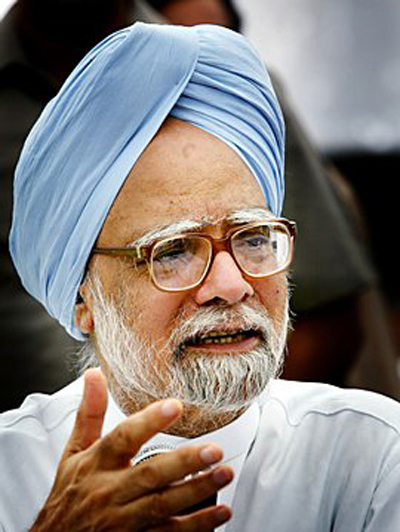NEW DELHI, Dec 15:
Pledging to alter the policy environment to accelerate economic growth, Prime Minister Manmohan Singh today promised to address concerns on GAAR and taxation of the IT sector along with giving high priority to finalisation of the Direct Taxes Code and Goods and Services Tax.
At the same time, he called for need to address the issues of under pricing of electricity and petroleum products to cut down the subsidy bill.
Addressing the AGM of FICCI, the Prime Minister said a year or two of excessive pessimism at home has hurt the growth process.
“But, I stand before you to reassure you that our Government is committed to doing everything that is possible to alter the policy environment, to accelerate economic growth and to make the growth process socially and regionally more inclusive,” he told the industry captains.
Singh said the government decisions on FDI in multi-brand retail, civil aviation and broadcasting and the bills on liberalising foreign investment limits in banking and insurance are based on sound economic logic to insulate the country from persistent global economic slowdown.
“I am afraid that those who oppose these moves are either ignorant of global realities or are constrained by out-dated ideologies,” he said, in an apparent reference to strong opposition from several political parties to reforms.
Singh said the steps the government has taken recently were only the beginning of a process to revive the economy and take it back to its trend growth rate of 8 to 9 per cent.
“We need to complete the exercise that was begun on GAAR and taxation of the IT sector. The day before yesterday, the Cabinet has approved the constitution of a Cabinet Committee on Investment.
“This would help in the issue of clearances for major projects in a time bound manner. We will speed up the disinvestment process which will also revive our equity markets,” he said.
The Prime Minister said the government was bringing greater clarity on the FDI policy in the pharma sector.
Besides, the Railways is working on a Rail Tariff Authority “which will make fare setting a more rational exercise”.
He said the government has already put in place a package for reviving Discoms contingent on better performance.
“The Direct Tax Code and the Goods and Services Tax Bills are high on our priority. The Land Acquisition Bill recently approved by our Cabinet with all the misgivings (expressed by the industry) will soon usher in a more fair and transparent regime for land acquisition,” Singh added.
He said some of the decisions government took were politically difficult and the “naysayers and the cynics have tried to halt us in our tracks”.
“But we had the courage of our conviction and the interests of our people at heart,” he said.
Referring to subsidies, Singh said last year the central government’s fiscal deficit touched a high of 5.9 per cent of the GDP.
“This was clearly unsustainable,” he said, adding, Finance Minister P Chidambaram has come out with a roadmap to reduce it to 5.3 per cent this year and to 3 per cent by 2016-17.
He said the government’s action in correcting distortions in energy pricing, reducing diesel and LPG subsidies, was aimed to achieve this objective.
On recent decisions of cutting subsidies on diesel and LPG cylinders, Singh said subsidies on oil alone are more than what the government spends on health and education put together.
“We need to address these issues even as we ensure that the poor and the vulnerable are effectively protected,” he said.
Singh said the government will do its best to promote Indian enterprise and ensure the well-being of all Indians, working classes and other segments of the society.
Referring to the price situation in the country, the Prime Minister said that inflation rates in the last two years have increased to “unacceptably high levels and need to be brought down to no more than 5 to 6 per cent per annum”.
He further said with time, the global slowdown has impacted India as well.
The global economy is still passing through turbulent times and there is considerable uncertainty about when the situation will improve.
“However, as you have seen in these past few weeks, our Government has acted to reverse the cycle of negative expectations, and stimulate investment,” he said.
The Prime Minister further said that India’s per capita levels have reached a point where the country may soon be required to graduate out of International Development Association (IDA), the low cost lending facility of the World Bank.
He said that while is certainly a cause for satisfaction that India is now able to extend low cost funding to other countries, social and regional inequalities continue to exist in the country.
“…I am pained when I see the level of social and regional inequalities that continue to exist in our country,” he said.
He, however, added that despite the challenges the country continued to face, “we must recognise that poverty has declined at a pace never seen in the past two hundred years”.
Singh also asked the private sector to play a more active role in the areas of research and development, education and skill development, health and rural development. (PTI)
Trending Now
E-Paper


